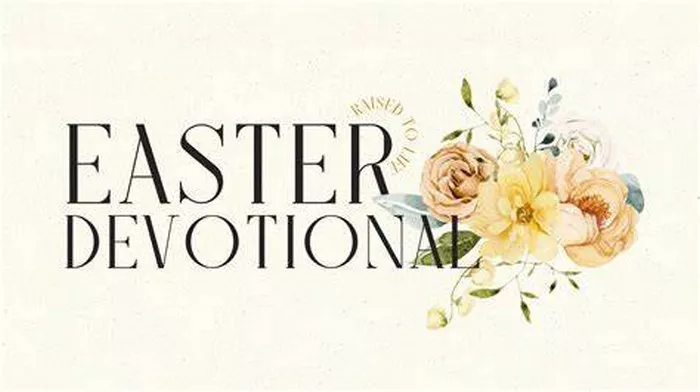Easter, celebrated by billions of people worldwide, stands as one of the most significant events in the Christian calendar. Rooted in centuries-old traditions, this holiday holds profound spiritual and cultural significance for believers and non-believers alike. While Easter has evolved over time, its core essence remains deeply ingrained in the human experience, offering a time for reflection, renewal, and rejoicing. In this article, we delve into the rich tapestry of Easter traditions, uncovering the reasons behind its celebration and exploring its enduring relevance in the modern world.
The Resurrection of Jesus Christ: A Pillar of Faith
At the heart of Easter lies the belief in the resurrection of Jesus Christ. According to Christian doctrine, Jesus, the central figure of Christianity, was crucified on Good Friday, only to rise from the dead on the third day, which is celebrated as Easter Sunday. This event, known as the Resurrection, is considered the cornerstone of the Christian faith, symbolizing victory over sin and death and offering the promise of eternal life to believers.
The Resurrection narrative is not merely a historical event for Christians but a profound theological truth that shapes their worldview and understanding of salvation. It serves as a testament to the power of God’s love and grace, demonstrating His ability to bring hope and redemption even in the face of despair and suffering.
Springtime Renewal: Symbolism of Rebirth and Regrowth
Beyond its religious significance, Easter also carries deep cultural symbolism associated with the arrival of spring. In many cultures, springtime is a season of rebirth and renewal, marked by the emergence of new life after the dormancy of winter. The timing of Easter, typically occurring in the spring months in the Northern Hemisphere, aligns with this natural cycle of rejuvenation, making it a fitting occasion to celebrate the triumph of life over death.
The imagery of Easter—blooming flowers, chirping birds, and vibrant colors—reflects this theme of renewal and serves as a visual reminder of the cyclical nature of existence. Whether through Easter egg hunts or the decorating of Easter baskets, these customs embody the spirit of rejuvenation and the anticipation of brighter days ahead.
Cultural Traditions: A Tapestry of Customs and Practices
Over the centuries, Easter has become intertwined with a myriad of cultural traditions and customs, each adding its own unique flavor to the celebration. From the elaborate processions of Holy Week in Spain to the joyous feasting of Orthodox Easter in Eastern Europe, the diversity of Easter traditions reflects the richness of global heritage and the universality of human experience.
One of the most iconic symbols of Easter is the Easter egg, which has been associated with fertility and rebirth since ancient times. The practice of dyeing and decorating eggs predates Christianity, with various cultures incorporating eggs into their springtime festivities. Today, the Easter egg remains a cherished tradition, symbolizing new life and the promise of beginnings.
Community and Fellowship: Coming Together in Faith and Celebration
Easter is not only a time for personal reflection but also a communal celebration that brings families, friends, and entire communities together. Whether attending church services, gathering for festive meals, or partaking in communal events, Easter fosters a sense of unity and fellowship among believers and non-believers alike.
In many communities, Easter represents an opportunity to extend hospitality and goodwill to others, whether through acts of charity or the sharing of food and resources. The spirit of generosity and compassion that pervades Easter serves as a reminder of the importance of empathy and solidarity in building a more harmonious society.
Reflection and Gratitude: Finding Meaning in the Journey
As Easter approaches, it offers a time for introspection and contemplation, prompting individuals to reflect on the deeper meanings of life and faith. Whether through prayer, meditation, or quiet contemplation, Easter invites people to pause and consider their values, beliefs, and aspirations.
For many, Easter is a time of gratitude, as they express thankfulness for the blessings in their lives and acknowledge the sacrifices made on their behalf. Whether through religious observance or secular celebration, the spirit of gratitude permeates Easter, reminding us of the importance of humility and appreciation.
Conclusion
In conclusion, Easter stands as a timeless tradition that resonates across cultures and generations, offering a poignant reminder of the enduring themes of faith, renewal, and community. From its roots in the Resurrection of Jesus Christ to its expression through cultural customs and practices, Easter encapsulates the essence of the human experience, uniting people in joy, hope, and celebration.
As we commemorate Easter each year, let us embrace the richness of its traditions and the depth of its symbolism, finding meaning and inspiration in the journey from darkness to light, from death to life. Whether through religious devotion, cultural celebration, or personal reflection, may Easter continue to uplift and inspire us, guiding us toward a future filled with hope, love, and compassion.

